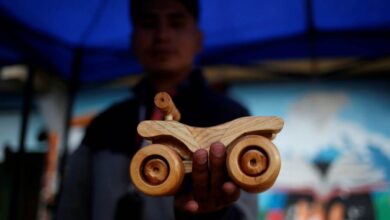Bolivia’s Dollar Drought Calls for Economic Reform Amid Regional Echoes of Financial Strain

Facing a persistent dollar shortage, Bolivia’s Bolivian Institute of Foreign Trade (IBCE) has proposed urgent measures, including the deregulation of export quotas and the elimination of the Financial Transaction Tax (ITF), highlighting a broader issue mirrored across Latin America amid economic challenges.
Bolivia’s Dollar Shortage: A Looming Economic Challenge
In Bolivia, a country rich in culture, history, and natural resources, the economy faces a significant challenge: a persistent shortage of U.S. dollars. This scarcity threatens to destabilize various sectors of the economy, from agriculture to industry and has prompted the Bolivian Institute of Foreign Trade (IBCE) to call for immediate action. The institute’s proposals, aimed at revitalizing the economy, resonate with similar issues other Latin American countries face, offering a stark reminder of the region’s interconnected economic vulnerabilities.
The dollar shortage in Bolivia has become a pressing concern, particularly for importers and sectors reliant on foreign services. According to Gary Rodríguez, the general manager of IBCE, the scarcity and rising cost of dollars are sowing uncertainty and could severely impact the country’s agricultural, forestry, industrial, pharmaceutical, commercial, and export sectors soon. The potential consequences are dire: reduced activity, operational shutdowns, price hikes, and inflation.
Rodríguez highlights a critical aspect of Bolivia’s economy: approximately 85% of imports consist of essential items such as raw materials, capital goods, transportation equipment, and fuels, which are indispensable for the country’s ongoing development and cannot simply be forgone. The situation is exacerbated by a reported fall in Bolivian exports, which dropped by more than $2.8 billion in 2023, leading to a trade deficit of nearly $700 million after three years of surplus. This deficit underlines the severity of the dollar circulation problem within the nation.
IBCE’s Proposed Measures
The IBCE has proposed a series of measures in response to the crisis. Among them is the “absolute liberation” of export quotas, a strategy to encourage sectors like agriculture, agro-industry, timber, and tourism. Historically, under the presidency of Evo Morales (2006-2019), Bolivia imposed quotas on the export of food items such as wheat, rice, maize, and meat to ensure domestic supply. Although these restrictions were temporarily lifted during Jeanine Áñez’s interim government (2019-2020), they were reinstated by President Luis Arce’s administration, highlighting the ongoing debate over the best approach to securing Bolivia’s economic stability and self-sufficiency.
Another significant proposal from the IBCE is the elimination of the Financial Transaction Tax (ITF). Introduced in 2004 under President Carlos Mesa (2003-2005) as a temporary measure to reduce the fiscal deficit, the ITF has been extended by successive governments and remains in effect. The IBCE argues that this tax discourages using dollars within the Bolivian financial system and unnecessarily penalizes currency transactions.
The institute also suggests allowing the unrestricted sale of dollars in the parallel market to eliminate speculative activities associated with the “black market.” This move aims to restore an open and competitive currency exchange market, which crackdowns on informal currency traders have undermined. Additionally, the IBCE recommends that the government secure external loans, seek financial support from multilateral organizations, and that the Central Bank of Bolivia (BCB) issue dollar-denominated bonds with attractive interest rates and financial insurance to bolster the country’s International Net Reserves (INR).
Latin America’s Shared Economic Challenges
Bolivia’s experience is expected in the region. Latin American countries have historically grappled with economic policies impacting dollar liquidity and financial stability. From Argentina’s cyclical currency crises to Venezuela’s hyperinflation and foreign currency shortages, the region presents a tapestry of economic challenges that often stem from similar root causes: reliance on commodity exports, insufficient diversification, and external debt vulnerabilities.
The situation in Bolivia serves as a microcosm of broader economic dynamics in Latin America, where policy decisions have far-reaching implications for economic stability and growth. The proposed measures by the IBCE underscore the urgent need for comprehensive economic reforms that address the underlying issues contributing to dollar shortages and financial instability.
Navigating Economic Challenges Together
As Bolivia and its Latin American neighbors continue to navigate these economic challenges, the experiences shared across borders offer valuable lessons. Sound fiscal policies, diversified economies, and robust financial systems cannot be overstated in their collective pursuit of sustainable growth and stability. The path forward requires a delicate balance between protecting domestic interests and embracing the global market dynamics that influence regional economic fortunes.
Also read: Peru’s Cabinet Shuffle Exemplifies Boluarte’s Bid to Revitalize Economy Amid Recession
Bolivia’s current economic predicament and the proposed solutions offer insight into the complex interplay between domestic policies and global economic trends. As the country seeks to overcome its dollar shortage and stimulate economic growth, the experiences of its Latin American counterparts provide both cautionary tales and blueprints for recovery. The collective wisdom gleaned from these shared challenges may pave the way for a more prosperous and resilient economic future for Bolivia and the region.




